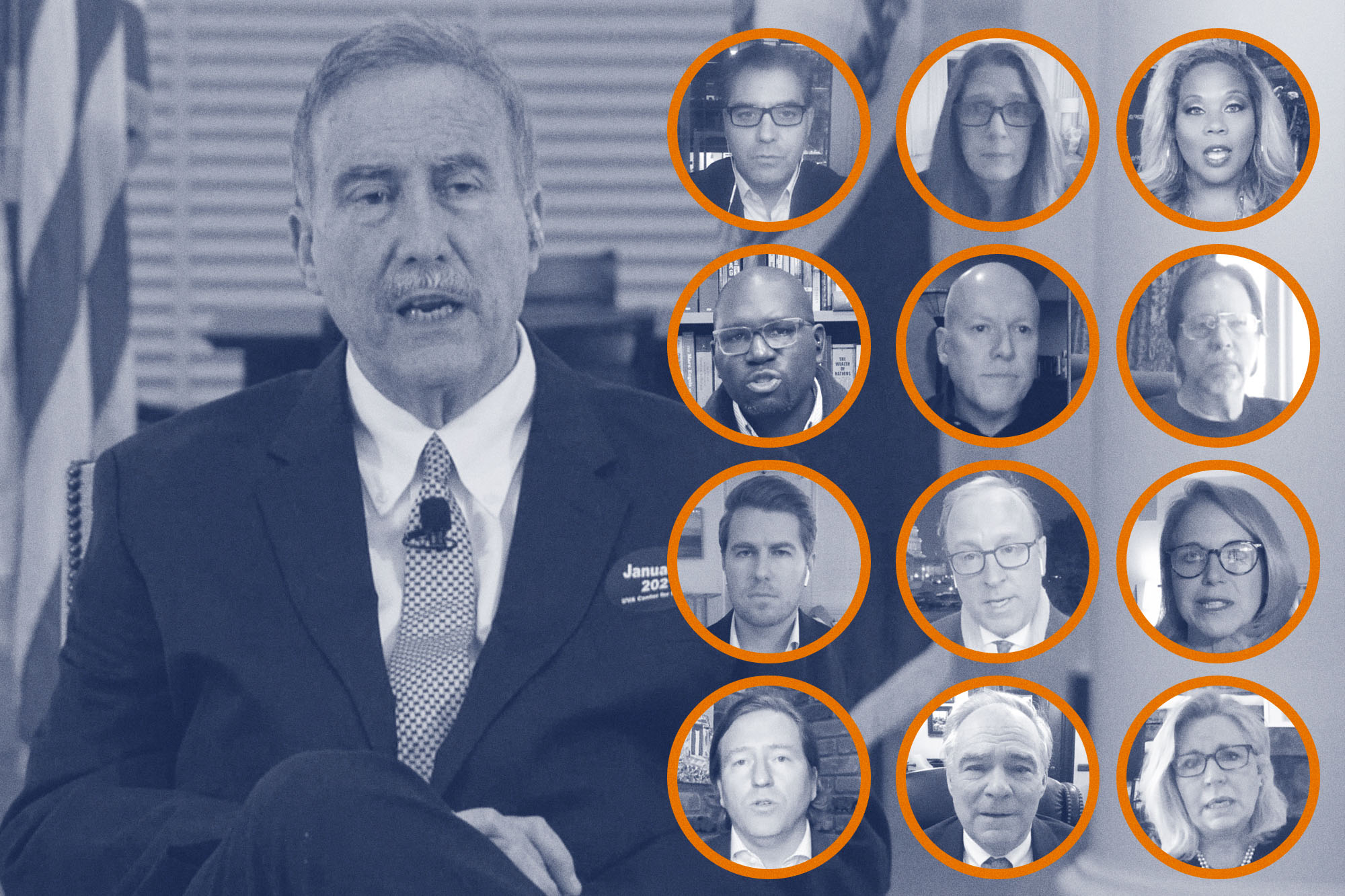“And I eventually realized this was the reason it was different. I’m a white male born in 1958. Nobody had ever tried to disenfranchise me before. I was a civil rights lawyer in the capital of the Confederacy, I did voting rights work. It really mattered to me, but I was fighting to protect the voting rights of others.
“For about four or five hours on Jan. 6, 2021, I felt for a brief period of time what it was like to be disenfranchised. The attackers were trying to overturn the expressed will of 80 million people who had voted for Joe Biden and Kamala Harris.
“And it was like, ‘Wow, this is what it feels like.’”
Sabato said during his opening remarks Thursday that “it’s still hard to believe the insurrection happened. Yet if our republic is to survive, our democracy is to survive, then it is something we must never forget.”
While Kaine had a front-row seat to the attack on democracy, it was simultaneously playing out on live television. Jonathan Karl of ABC News and CNN’s Jim Acosta covered the shocking scenes that still linger symbolically today.
Sabato spoke with both journalists Thursday.
Acosta, citing the election “big lie” that triggered the Jan. 6 attacks as the main point – the Trump supporters’ continuing notion that Biden somehow stole the election, still being encouraged by Trump himself – said the continued splintering of America is a major issue.
“We’ve reached a very serious moment in this country,” Acosta said. “The country is at a crossroads. Are we going to believe the truth, or are we going to believe lies? And Donald Trump has convinced, you know, 30% to 40% of the country to believe his lies. … How do we solve that riddle? How do we crack the code and get the 30% to 40% of the American people who are believing Trump’s lies to come back to the real world? And until we do that, until we figure out that special sauce to get those folks to do that, we’re in a whole lot of trouble in this country.”
Getting to the root of misinformation has become a passion for UVA alumni Katie Couric and Christopher Krebs. Couric, a journalist who’s served as television host for ABC, CBS and NBC, and Krebs, the former director of the Department of Homeland Security’s Cybersecurity and Infrastructure Security Agency and a UVA Center for Politics resident scholar, are co-chairs of The Aspen Institute’s Commission on Information Disorder.
“I think disinformation and misinformation is really contributing to a national state of confusion,” Couric said Thursday. “Misleading information, outright falsehoods are being ingested and spread with abandon, fueled by anger and algorithms.
“And as we saw, that really laid the foundation for so many of the events. And you look back at Jan. 6, one year ago, and this false narrative – i.e. the ‘Big Lie’ – I think provided the fuel and the weird rationale for the behavior that we saw unfold on Jan. 6.
“So I was very interested in being a part of this commission with Chris and Rashad (Robinson) and a lot of really smart people, academics and journalists and corporate leaders to try to figure out how this is contributing to the decay of our democracy.”
That commission’s final report can be found here.
In a segment taped earlier this week and replayed as part of Thursday’s conference, U.S. Rep. Liz Cheney, the Republican from Wyoming who serves as the vice chair of the House select committee investigating the Jan. 6 attacks, ended Thursday’s session with some needed optimism.
“One of the things that has given me tremendous hope over the course of the last year is the young people that I talked to across Wyoming and across America,” she said. “Young people want to get involved in our process. Maybe because of what’s happening, because they see how high the stakes are.
“I believe that politics, fundamentally is about citizens influencing our government and you know, that it is a is a good thing, and it’s a very important thing. … We need many, many young people across the country engaged and involved.”
Watch the full replay of Thursday’s event, which also included commentary from New York Times columnist Jamelle Bouie, Mick McWillams and Larry Schack of Project Home Fire, former GOP communications director Tara Setmayer, Miles Taylor of Renew America Movement and author Mary Trump, here.










